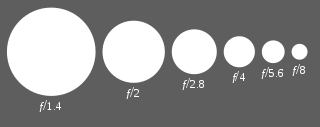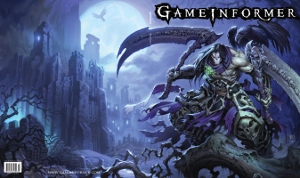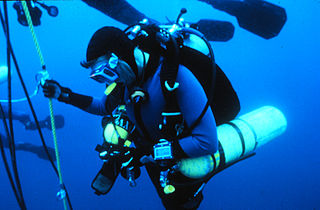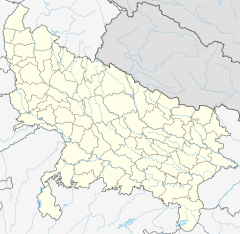
Animation is a filmmaking technique by which still images are manipulated to create moving images. In traditional animation, images are drawn or painted by hand on transparent celluloid sheets (cels) to be photographed and exhibited on film. Animation has been recognized as an artistic medium, specifically within the entertainment industry. Many animations are computer animations made with computer-generated imagery (CGI). Stop motion animation, in particular claymation, has continued to exist alongside these other forms.
In phonetics, aspiration is the strong burst of breath that accompanies either the release or, in the case of preaspiration, the closure of some obstruents. In English, aspirated consonants are allophones in complementary distribution with their unaspirated counterparts, but in some other languages, notably most South Asian languages and East Asian languages, the difference is contrastive.

Stop motion is an animated filmmaking technique in which objects are physically manipulated in small increments between individually photographed frames so that they will appear to exhibit independent motion or change when the series of frames is played back. Any kind of object can thus be animated, but puppets with movable joints or plasticine figures are most commonly used. Puppets, models or clay figures built around an armature are used in model animation. Stop motion with live actors is often referred to as pixilation. Stop motion of flat materials such as paper, fabrics or photographs is usually called cutout animation.
In phonetics, a plosive, also known as an occlusive or simply a stop, is a pulmonic consonant in which the vocal tract is blocked so that all airflow ceases.

In optics, the aperture of an optical system is a hole or an opening that primarily limits light propagated through the system. More specifically, the entrance pupil as the front side image of the aperture and focal length of an optical system determine the cone angle of a bundle of rays that comes to a focus in the image plane.
An affricate is a consonant that begins as a stop and releases as a fricative, generally with the same place of articulation. It is often difficult to decide if a stop and fricative form a single phoneme or a consonant pair. English has two affricate phonemes, and, often spelled ch and j, respectively.

The pipe organ is a musical instrument that produces sound by driving pressurised air through the organ pipes selected from a keyboard. Because each pipe produces a single pitch, the pipes are provided in sets called ranks, each of which has a common timbre, volume, and construction throughout the keyboard compass. Most organs have many ranks of pipes of differing pitch, timbre, and volume that the player can employ singly or in combination through the use of controls called stops.
Glottal consonants are consonants using the glottis as their primary articulation. Many phoneticians consider them, or at least the glottal fricative, to be transitional states of the glottis without a point of articulation as other consonants have, while some do not consider them to be consonants at all. However, glottal consonants behave as typical consonants in many languages. For example, in Literary Arabic, most words are formed from a root C-C-C consisting of three consonants, which are inserted into templates such as or. The glottal consonants and can occupy any of the three root consonant slots, just like "normal" consonants such as or.

An f-number is a measure of the light-gathering ability of an optical system such as a camera lens. It is calculated by dividing the system's focal length by the diameter of the entrance pupil. The f-number is also known as the focal ratio, f-ratio, or f-stop, and it is key in determining the depth of field, diffraction, and exposure of a photograph. The f-number is dimensionless and is usually expressed using a lower-case hooked f with the format f/N, where N is the f-number.

The glottal stop or glottal plosive is a type of consonantal sound used in many spoken languages, produced by obstructing airflow in the vocal tract or, more precisely, the glottis. The symbol in the International Phonetic Alphabet that represents this sound is ⟨ʔ⟩.

A bus stop is a place where buses stop for passengers to get on and off the bus. The construction of bus stops tends to reflect the level of usage, where stops at busy locations may have shelters, seating, and possibly electronic passenger information systems; less busy stops may use a simple pole and flag to mark the location. Bus stops are, in some locations, clustered together into transport hubs allowing interchange between routes from nearby stops and with other public transport modes to maximise convenience.

Game Informer was an American monthly video game magazine featuring articles, news, strategy, and reviews of video games and game consoles. It debuted in August 1991, when the video game retailer FuncoLand started publishing an in-house newsletter. It was acquired by the retailer GameStop, which bought FuncoLand in 2000. Due to this, a large amount of promotion was done in-store, which contributed to the success of the magazine. As of June 2017, it was the fifth-most popular magazine by copies circulated.

In motorsports, a pit stop is a pause for refuelling, new tyres, repairs, mechanical adjustments, a driver change, as a penalty, or any combination of the above. These stops occur in an area called the pits, most commonly accessed via a pit lane which runs parallel to the start/finish straightaway of the track and is connected to it at each end. Along this lane is a row of garages outside which the work is done in a pit box. Pit stop work is carried out by the pit crew of up to twenty mechanics, depending on the series regulations, while the driver often waits in the vehicle.
GameStop Corp. is an American video game, consumer electronics, and gaming merchandise retailer. The company is headquartered in Grapevine, Texas, and is the largest video game retailer worldwide. As of February 2024, the company operates 4,169 stores including 2,915 in the United States, 203 in Canada, 404 in Australia and 647 in Europe under the GameStop, EB Games, EB Games Australia, Micromania-Zing, ThinkGeek and Zing Pop Culture brands. The company was founded in Dallas in 1984 as Babbage's, and took on its current name in 1999.
A Terry stop in the United States allows the police to briefly detain a person based on reasonable suspicion of involvement in criminal activity. Reasonable suspicion is a lower standard than probable cause which is needed for arrest. When police stop and search a pedestrian, this is commonly known as a stop and frisk. When police stop an automobile, this is known as a traffic stop. If the police stop a motor vehicle on minor infringements in order to investigate other suspected criminal activity, this is known as a pretextual stop. Additional rules apply to stops that occur on a bus.

The Stop & Shop Supermarket Company, known as Stop & Shop, is an American regional chain of supermarkets located in the northeastern United States. From its beginnings in 1892 as a small grocery store, it has grown to include 406 stores chain-wide.

"Don't Stop Believin'" is a song by American rock band Journey. It was released in October 1981 as the second single from the group's seventh studio album, Escape (1981), released through Columbia Records. "Don't Stop Believin'" shares writing credits between the band's vocalist Steve Perry, guitarist Neal Schon, and keyboardist Jonathan Cain. A mid-tempo rock anthem and power ballad, "Don't Stop Believin'" is known for its iconic opening piano riff.

In public transport, a request stop, flag stop, or whistle stop is a stop or station at which buses or trains, respectively, stop only on request; that is, only if there are passengers or freight to be picked up or dropped off. In this way, stops with low passenger counts can be incorporated into a route without introducing unnecessary delay. Vehicles may also save fuel by continuing through a station when there is no need to stop.
The full stop, period, or full point. is a punctuation mark used for several purposes, most often to mark the end of a declarative sentence.

A Pyle stop is a type of short, optional deep decompression stop performed by scuba divers at depths well below the first decompression stop mandated by a conventional dissolved phase decompression algorithm, such as the US Navy or Bühlmann decompression algorithms. They were named after Richard Pyle, an American ichthyologist from Hawaii, who found that they prevented his post-dive fatigue symptoms after deep dives to collect fish specimens.















